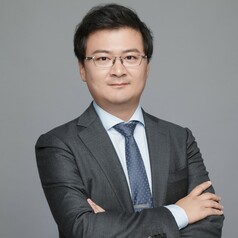
Pengfei Song
Xi'an Jiaotong-Liverpool University
Pengfei Song is an Assistant Professor in Department of Mechatronics and Robotics at Xi’an Jiaotong – Liverpool University. Pengfei received his B.Eng. degree from Jilin University, China in 2013 and Ph.D. degree from McGill University, Canada in 2018, both in mechanical engineering. Pengfei’s research interests lie primarily in microsystems, which include 1) microfluidic biosensors and platforms and 2) automation and robotics at microscale. Pengfei’s research receives several awards/finalists from major microfluidic and robotic conferences. Pengfei also serves as Associate Editors in IEEE-RAL, Frontiers in Robotics and AI, and the Young Editor in Cyborg and Bionic Systems.
Less ![]()
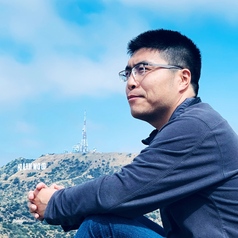
Pengfei Zhang
Assistant Research Professor of Atmospheric Science, Penn State
Pengfei Zhang is an Assistant Research Professor in Meteorology and Atmospheric Science. His research focus areas include polar amplification, Arctic-latitudes linkage, Arctic sea ice loss, mid-high latitudes extreme weathers, stratosphere-troposphere coupling, and climate modeling.
Less ![]()

Pengju Li
Ph.D. Candidate in Molecular Engineering, University of Chicago Pritzker School of Molecular Engineering
My journey began during my undergraduate years at the National University of Singapore, where I dabbled in the development of a skin prosthesis for amputees. This experience marked my first foray into the integration of engineered materials with biological components – a field that I would later become deeply immersed in, combining my love for science with a dedication to enhancing human lives.
Driven by the desire to delve deeper into this fascinating crossroads of physical science, chemistry and biology, I embarked on my Ph.D. at the University of Chicago. In the nurturing environment of the Tian Research Group, I am not just on a career path – I am on a captivating journey. This journey is carefully sculpting me into a pioneering chemist, an innovative nanofabrication and electronic engineer. Moreover, it has honed unique talents within me, transforming me into a dedicated animal caretaker and a proficient specialist in animal surgeries.
Over the past five years, my understanding and skills have deepened. I firmly believe that intertwining diverse knowledge fields is crucial for pushing scientific boundaries. To this end, I have become a steadfast practitioner, collaborating with exceptional professionals, ranging from medical doctors and theorists to artists and entrepreneurs, to advance the frontiers of translational research.
Currently, I am working on optically and electronically mediated systems to address cardiac and neurodegenerative diseases. I look forward to many more milestones in this journey.
Less ![]()

Penni Russon
Senior Lecturer, School of Communication, Monash University
Dr Penni Russon is an award winning author of several novels for children and young adults. She brings over twenty years experience as an editor, author and researcher to her teaching and research in Writing and Publishing at UTS. As well as writing fiction, she's applied her knowledge of young adult readerships to internationally recognised collaborative research in youth mental health. Her doctoral research involved designing and developing comics for use in youth mental health. This research has taken her to conferences around the world and has positively impacted the lives of young people through online mental health service delivery in Europe and North America as well as Australia.
Penni's research sits at the intersection of reading and writing, with an interest in the way texts generate meanings, in particular through readers embodied responses to gaps in the telling and the traces of the author residual in the text (such as the wobbliness of the hand drawn line in comics or the quality we call 'voice' in prose fiction). She is also interested in the way communities form around texts, whether through communities of practice in the classroom, or networking through and around literary and aesthetic reading and writing in 'intimate publics'. She is fascinated by liminality, the in-between spaces where meanings are contested and negotiated.
Less ![]()
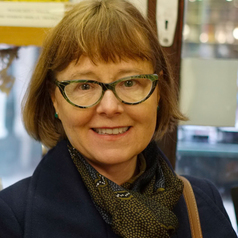
Penny Hawe
My training is in community psychology and public health epidemiology. My main expertise is the theory, methods, ethics and economics of complex, multi-level community and population-level interventions to promote health and prevent disease. I'm best known for my publications in health promotion evaluation, social capital, and using complexity thinking to design more effective interventions and more appropriate evaluation methods. My main empirical work is in schools and neighbourhoods.
I spent 10 years in Canada where I had the opportunity to help shape the Canadian Institutes of Health Research's strategy to move from descriptive and analytic health research to more solution-focused investments in population health intervention research.
I am currently a Professor of Public Health at the Menzies Centre for Health Policy at the University of Sydney and a lead investigator of the NHMRC Australian Prevention Partnership Centre (TAPPC) . My focus of interest in TAPPC is in implementation science and communication of the science underpinning public policy.
Less ![]()

Penny Love
Senior Lecturer and Research Fellow, Deakin University
Penny Love is an Advanced Accredited Practicing Dietitian (Adv APD) and a senior lecturer for Public Health and Community Nutrition within the School of Exercise and Nutrition Sciences (SENS). As a research fellow within the Institute for Physical Activity and Nutrition (IPAN), her research focuses on the translation, adoption and sustained implementation of early childhood obesity prevention initiatives at scale within existing health and education service delivery systems.
Less ![]()
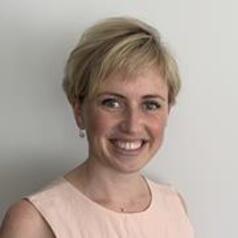
Penny Payne
Social Scientist, University of Waikato
I am passionate about creating and facilitating research which generates impact for next and end users. My work has focused on biodiversity, biosecurity, rural resilience and agriculture more generally.
Less ![]()

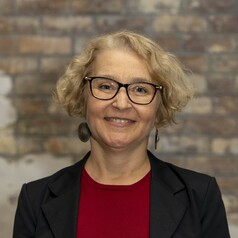
Penny Taylor
Researcher, University of Tasmania
Dr Penny Taylor is an experienced human rights advisor, legal practitioner and researcher with 20 years of professional experience. She has worked throughout Australia and the Pacific.
Her research was awarded the 2020 Peter Saunders Paper of the Year by the Australian Journal of Social Issues.
She has a PhD in race relations, with a focus on building capacity in non-Indigenous Australians for constructive race relations with Australia's Indigenous peoples. She is particularly interested in Indigenous perspectives on the transformations within the White Australian population necessary to achieve reconciliation.
She has worked as a Senior Consultant for Murawin Pty Ltd and was Head of Research at the Larrakia Nation Aboriginal Corporation in Darwin for 5 years. Under her management the Larrakia Nation Research Division undertook a major multi-year research project, in partnership with the University of Tasmania, investigating Indigenous perspectives on White Australian people, culture and race-relations.
Prior to this she was a lawyer working in the field of women's and children's human rights. She has worked as a children's human rights advisor for the United Nations throughout the Pacific. This was followed by over a decade in the Northern Territory of Australia.
Dr Taylor has developed a number of creative resources designed to increase awareness and understanding in the broader Australian population of Indigenous experiences and knowledges. These include the Darwin Radio Diaries and co-authorship of the autobiography of a Yolngu Senior Law Man entitled "Striving to Bridge the Chasm: My Cultural Learning Journey". His name is omitted here due to his recent passing.
Less ![]()
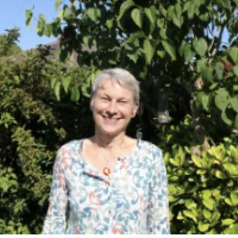
Penny Tinkler
Professor of Sociology and History, University of Manchester
My academic career straddles the disciplines of sociology and history. Following a History degree in the School of Social Sciences at Sussex University, I completed a PhD on the cultural construction of girlhood in Lancaster University’s Educational Research Department and then held a British Academy Post-Doctoral Fellowship in the Centre for Women’s Studies. I joined Sociology at the University of Manchester in 1993.
My research centres on 2 inter-related fields: (i) Gender History with particular reference to Girlhood, Visual Culture, Consumption, Age and Ageing, Girls’ magazines; (ii) Biographical and Visual Methods, including Photographic methods.
I am a member of the British Sociological Association, the Women’s History Network, Gender & Education Association, and the Social History Society.
Less ![]()

Penny Webb
Distinguished Scientist, Gynaecological Cancers Group, QIMR Berghofer Medical Research Institute
Less ![]()
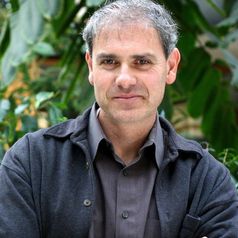
Pep Canadell
Pep Canadell is a research scientist in CSIRO Oceans and Atmosphere, and the Executive Director of the Global Carbon Project, an international research project to study the interactions between the carbon cycle, climate, and human activities.
Pep focuses on collaborative and integrative research to study global and regional aspects of the carbon cycle, the size and vulnerability of earth carbon pools, and pathways to climate stabilization. He publishes in the field of global ecology and earth system sciences http://goo.gl/Ys7vdF
Less ![]()

Pepper Culpepper
Blavatnik Professor of Government and Public Policy, University of Oxford
Pepper Culpepper is Blavatnik Professor of Government and Public Policy at the Blavatnik School of Government, and a Professorial Fellow at Nuffield College, at the University of Oxford. His research focuses on the intersection between capitalism and democracy, both in politics and in public policy.
Culpepper is the Principal Investigator of a €2.5 million 5-year Advanced Grant from the European Research Council, – Banklash – which uses multiple tools of cutting-edge social science research to establish the link between interest group conflict, public opinion, and financial policymaking after the financial crisis of 2008.
His book Quiet Politics and Business Power was awarded the Stein Rokkan Prize for Comparative Social Science Research by the International Social Science Council and the European Consortium for Political Research. He is the author of Creating Cooperation and the co-editor of Changing France and of The German Skills Machine. His commentary has appeared in the International Herald Tribune, Le Monde, the New Republic, Times Higher Education, and the Washington Post.
Less ![]()

Pere Monràs i Riera
Investigador predoctoral en conservación y gestión de la biodiversidad, Universitat de Barcelona
Graduado en Biología, especializado en Ecología, Gestión y Restauración del Medio Natural. Actualmente soy investigador predoctoral en un doctorado sobre Conservación y Gestión de la Biodiversidad. Mi tesis se centra en los desechos marinos en la Antártida, abarcando desde su abundancia y posibles fuentes hasta los microorganismos que colonizan los plásticos. He participado en las campañas antárticas 2021-22 y 2022-23. Además, soy guía de buceo certificado (Divemaster SSI).
Less ![]()
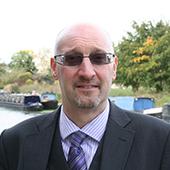
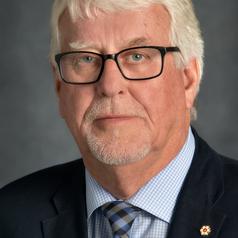
Perry Kendall
Clinical Professor, Faculty of Medicine, School of Population and Public Health, University of British Columbia
Perry Kendall was the Provincial Health Officer for BC from 1999-2018, a recipient of the Order of Canada (2019), the Order of BC (2005), and the Legacy Premier’s Award (2015), and inductee into the BC Public Service Hall of Excellence (2015). Dr. Kendall is also a clinical professor in the faculty of medicine, school of population and public health at the University of British Columbia and adjunct faculty in the school of social and health policy at the University of Victoria.
Less ![]()
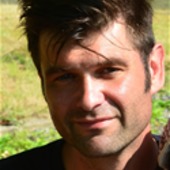
Pete Fussey
Professor of Criminology and Head of Department for Sociology, Social Policy and Criminology, University of Southampton
Less ![]()
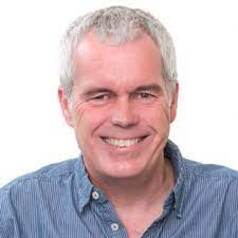
Pete Wilde
Emeritus Fellow, Bioscience, Quadram Institute
I graduated with a degree in Biophysics from the University of East Anglia in 1985, and began my research career at the Institute of Food Research in the same year, working on the dielectric spectroscopy of protein systems. Since then my main research interest has been relating to the interfacial properties of surface-active food components with functional properties of foods. My initial research was to determine how molecular structure and properties influence interfacial behaviour, which in turn controls bulk functional behaviour (i.e. foam and emulsion stability). My main interest was to understand how proteins adsorb at interfaces, how they interact with surfactants and emulsifiers, what structural changes take place and how this affects interfacial tension, interfacial rheology, adsorbed layer dynamics and subsequent foam and emulsion properties.
My research focus has gradually changed over the years, and now the main aims of my research are to understand how the microstructure of food changes during digestion and the impact of this on health. I am interested in how the molecular and interfacial properties influence the fundamental mechanisms that control the texture breakdown and digestion of food emulsion systems in order to develop strategies for improving the nutritional impact of dietary fats. This includes investigating the key interfacial and colloidal mechanisms underpinning the digestion and absorption of dietary fat, and how this may impact on physiological responses such as satiety, serum lipids and cholesterol.
I also have a broader interest in how the different length scales of structure in food influence the way it is digested. I firmly believe that the structure of the food we eat is the single most important factor determining the health outcomes of our diet. By understanding the relationship between food structure and health, we can understand how foods can be designed to control the rate and extent of digestion and delivery of beneficial compounds to the microbiota. Controlling the kinetics of digestion and fermentation can lead to positive health benefits such as improved glucose, lipid and insulin response and promotion of satiety. These will ultimately lead to improved outcomes in individuals in terms of obesity, type 2 diabetes and related metabolic conditions.
I have published over 135 papers (h-index = 40, average citations = 33 per paper) and presented approximately 15 invited lectures at international meetings. I am a member of the Food Group Committee of the Royal Society of Chemistry. I am on the editorial board of Food Hydrocolloids and Colloids and Interfaces. I am an Honorary Professor in the School of Pharmacy at the University of East Anglia.
Less ![]()
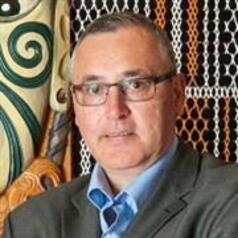
Peter Adds
Professor, Te Herenga Waka — Victoria University of Wellington
Peter Adds is a Professor (Teaching) in Te Kawa a Māui - School of Māori Studies. He has worked in Māori Studies at Victoria University of Wellington since 1984 and has amassed experience in university administration, teaching and research. His primary tribal affiliation is to Te Āti Awa in Taranaki and his academic training is in anthropology and archaeology.
Less ![]()
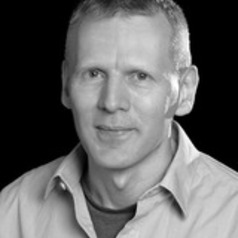
Peter Allen
Peter Allen is lecturer in Film and Television, Victorian College of the Arts, University of Melbourne and an award winning filmmaker and educator with a specific interest in effects and animation.
Less ![]()
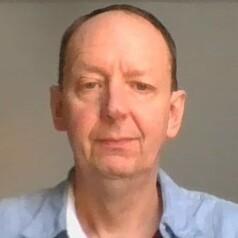
Peter Allmark
Researcher, University of Sheffield
I am a part-time researcher at the Mesothelioma UK Research Centre, University of Sheffield. My doctorate is in health care ethics, from Leeds University. I trained as a nurse in 1983.
Less ![]()
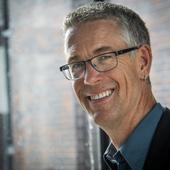
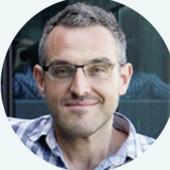
Peter Azzopardi
Professor, Global Adolescent Health, Murdoch Children's Research Institute
Less ![]()

Peter Barham
Professor emeritus, University of Bristol
Peter Barham's research at the University of Bristol is concerned with polymer physics. He found ways to connect his research with his love of penguins, including the creation of silicon-based flipper bands which can be used for monitoring penguin populations. The silicone bands are designed to minimize the potential impact of carrying an external marking device and are currently in use on African penguins (Spheniscus demersus) at Bristol Zoo, UK and in the wild in South Africa. More recently, together with colleagues in the Computer Science Department at the University of Bristol, he has developed a computer vision system for the automatic recognition of African penguins. This system in 2008[2] was undergoing trials in South Africa.
Less ![]()
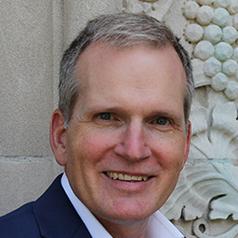
Peter Berg
Professor of Employment Relations; Director of Human Resources and Labor Relations, Michigan State University
Peter Berg is professor of employment relations and Director of the School of Human Resources and Labor Relations at Michigan State University. His research interests include work-life flexibility policies and practices, the implications of an aging workforce for organizations, and international comparisons of working time. Professor Berg is the author of numerous publications in a variety of academic journals, including ILRReveiw, Human Relations, and Human Resource Management Review. He is also a co-author of the book Manufacturing Advantage: Why High Performance Work Systems Pay Off. Professor Berg has been a Fulbright Scholar and conducted research or presented his work in over 20 countries around the world. He has served as an executive board member of the Labor and Employment Relations Association (LERA) and as President of the Industry Studies Association. Professor Berg also serves on the editorial board of ILR Review, Work, Aging, and Retirement, and on the international advisory board of the British Journal of Industrial Relations.
Less ![]()
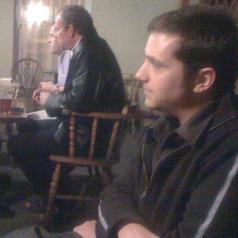
Peter Bloom
Lecturer in Organisation Studies, Department of People and Organisation, The Open University
I am a lecturer in the Department of People and Organisations at the Open University. My primary research interest centre reconceptualising power, resistance and ideology – specifically in the contemporary context of capitalism. In 2009, I was awarded a doctorate in Ideology and Discourse Analysis at University of Essex for my thesis, Creating the “Chinese Market”: The CCP and the Discursive Construction of an Authoritarian Capitalism through a Maoist Governing Paradigm, 2002-2008, which was funded through the Overseas Research Awards scheme. Since this time I have amassed a growing international publishing record in the fields of organizational studies and social theory. My work has been published in Theory and Event, Journal of Political Ideologies, Journal of Political Power, Research on the Sociology of Organization, Culture and Organizations, Ephemera, Journal of Organizational Change Management, Organization and International Journal of Žižek Studies among others. I am currently completing a manuscript entitled ‘Authoritarian Capitalism in the Age of Globalization’ to be published by Edward Elgar Press.
For more details you can visit my academia.edu page at
https://open.academia.edu/PeterBloom
Less ![]()
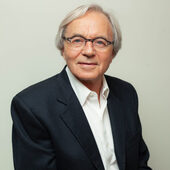
Peter Butt
Associate Professor, Department of Academic Family Medicine, University of Saskatchewan
Less ![]()
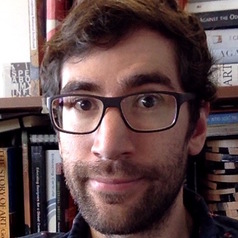
Peter Buwert
I am a lecturer in Graphic Design at Edinburgh Napier University. My general research interests surround the social, ethical and political dimensions of visual communication design as it operates within society. My PhD research investigating the ethical foundations of design was carried out at Gray’s School of Art, Robert Gordon University.
Less ![]()
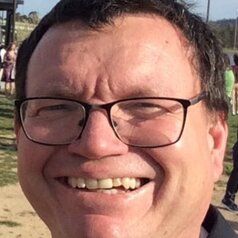
Peter Caley
Senior Research Scientist in quantitative ecology, CSIRO
Peter has a 35-year career undertaking applied research in the fields of animal populations, animal disease, invasive plants and pests, human diseases and much more ... He has a PhD in Applied Ecology and Masters of Applied Science from the University of Canberra.
Less ![]()

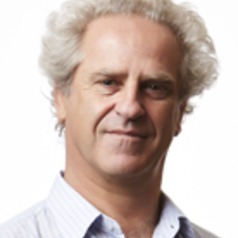
Peter Christoff
Peter Christoff is a political scientist and Associate Professor in the Department of Geography, where he teaches climate policy and environmental policy. He was formerly a member of the Victorian Premier's Climate Change Reference Group, and of the Victorian Ministerial Reference Council on Climate Change Adaptation, under the Victorian Brumby Government. He is also currently a Board member of the Australian Conservation Foundation and was its Vice President for eight years. His recent publications include the books 'Four Degrees of Global Warming: Australia in a hot world' and 'Globalization and the Environment' (with Prof. Robyn Eckersley).
Less ![]()
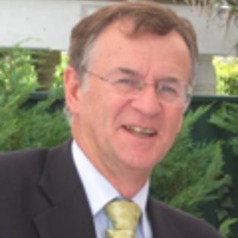
Peter Collignon
Professor, infectious diseases and microbiology, Australian National University
Professor Collignon works as an Infectious Diseases physician. He is also a microbiologist and is director of the Infectious Diseases Unit and Microbiology at The Canberra Hospital. He is also involved in teaching and is a Professor at the Medical School of the Australian National University.
He is active in many research and public health advocacy issues dealing with different infections and their risks. Particular interests are antibiotic resistance (especially in Staph), hospital acquired infections (especially blood stream and intravascular catheter infections) and resistance that develops through the use of antibiotics in animals. He is extensively involved in Infection Control projects looking at procedures and current practices in medicine and how these may be improved to decrease the risks for patients acquiring infections.
He has been and continues to be an active member of many national and international committees, including those of the Australian Quality and Safety Commission. He has been appointed to many of the expert committees of the World Health Organization (WHO) on the issue of antibiotic resistance and the use of antibiotics in food animals.
In June 2010 he was made a Member of the Order of Australia (AM) for services to Medicine in Infectious Diseases, Microbiology and Infection Control.
Less ![]()
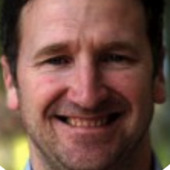

Peter Coveney
Peter Coveney holds a Chair in Physical Chemistry and is Director of the Centre for Computational Science, based in the Department of Chemistry. He is an Honorary Professor of Computer Science at UCL and Professor Adjunct at Yale University. His research focuses on many different areas, from molecular and mesoscale fluid dynamics simulations to multiscale materials modelling and computational biomedicine, all exploiting high performance computational techniques. He is co-organiser (with Jean Pierre Boon and Sauro Succi) of the Solvay Symposium on Multiscale Modelling at the Physics, Chemistry and Biology Interface, which is taking place at the Free University of Brussels in Brussels, Belgium, 19-21 April 2016. His paper to be presented at the conference, entitled "Big Data Needs Big Theory Too", is co-authored with Prof Ed Dougherty and Dr Roger Highfield.
Less ![]()
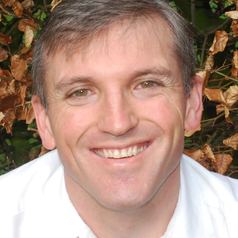
Peter Cowling
Professor Peter Cowling is a member of the Department of Computer Science and the York Centre for Complex Systems Analysis (YCCSA) at the University of York. His research is focussed on models and algorithms for decision making in games and resource optimisation problems, and to this end he works with a wide range of industry partners in the games and IT industries.
He is the Director of 3 large projects in the area of digital games and media:
The Digital Creativity Hub (DC Hub -www.digitalcreativity.ac.uk) was recently awarded £18 million in funding which will drive our ambition to become a world centre of research in digital games, interactive media and the space where they converge. It has over 80 partners from digital content industries.
The EPSRC Centre for Doctoral Training in Intelligent Games and Game Intelligence (IGGI - www.iggi.org.uk) has over £12 million in support to train 56+ PhD students working with the games industry over the next 7 years.
The New Economic Models and Opportunities for digital Games (NEMOG - www.nemog.org), as well as the DC Hub and IGGI is actively investigating how digital games and interactive media can be repurposed to achieve economic, scientific, social and cultural impact - primarily through working with industry and public sector organisations.
He has also worked on a number of projects to develop IT decision support systems for road maintenance, personnel scheduling, logistics and manufacturing.
He has published over 100 papers in leading scientific conferences and journals and gained over £35 million in research funding across 38 projects.
Less ![]()
- Market Data























